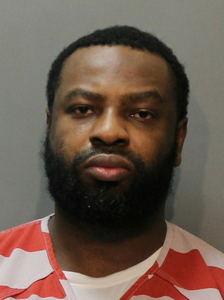![]()

A Rapid City jury resumes deliberations this morning in the murder trial of a New York City man charged with killing 3 people in August 2020, two over drugs and one because he was the lone witness.
Jurors deliberated the fate of 37-year old Arnson Absolu for about 4-½ hours Wednesday afternoon before going home about 5:30.
Absolu is charged with 1st-degree murder in the deaths of 29-year old Ashley Nagy of Greeley, CO, and two Rapid City men, 26-year old Charles Red Willow and 22-year old Dakota Zaiser.
Lead prosecutor Roxanne Hammond spent nearly 90 minutes on her closing arguments, carefully recounting the case put together with dozens of witnesses over 8 days of testimony.
Hammond said Absolu had entered the Rapid City drug scene a few months before the killings thinking he could be a big fish in a small pond. She said he shot Red Willow and Nagy in a car in a Rapid City park over a drug debt, and killed Zaiser, who helped set up the murders, by stabbing him in the back in an apartment
Defense attorney Timothy Rensch, who called no witnesses during the trial and passed on an opening statement, used his closing arguments to emphasize that the burden of proof is on the prosecution and to attack the credibility of both the state’s witnesses and evidence.
Rensch reminded the jurors no blood or DNA evidence was found linking Absolu to any of the crime scenes, argued that video putting him at the park where the shooting occurred isn’t of Absolu, and that a witness who testified he helped hide Zaiser’s and clean up the murder scene lied to investigators at least 350 times when first questioned.
Rensch also suggested racism was involved in the trial, calling Absolu “a foreigner in a foreign land – a Black man in South Dakota in a sea of white.”
The jury isn’t limited to a yes-or-no decision on premeditated 1st-degree murder; it can also choose 2nd-degree murder or aiding and abetting a murder, which requires only that a murder occurred and he aided in its commission.
A conviction for 1st-degree murder would carry an automatic life sentence because the state decided against seeking the death penalty.
